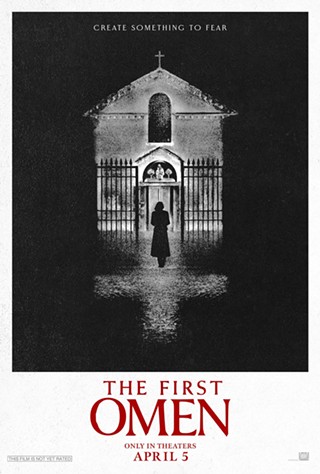Rock in the Red Zone, a documentary about the music scene in southern Israel's tumultuous Sderot, is one of the featured films at the 25th Annual Tucson International Jewish Film Festival. In anticipation of the festival, Tucson Weekly had a chance to speak with Red Zone director, Laura Bialis.
Laura, when you set out to make your music documentary in Sderot, how aware of the constant bombings from the Gaza strip were you?
I had heard plenty about the rockets into Sderot. When I started researching that aspect of the town, I found out it was a hotbed for music. So, I really did go there with the intention of covering the music scene. Finding people, teenagers and young artists, trying to make music in a war zone. I was curious. Do they write and sing about their current situation? Do they write about other things as a means of escape? What I did find out is that the teenagers absolutely couldn't escape it. They absolutely had to sing about the situation in Sderot.
When you were in Sderot, incoming rockets were an ever-present threat. You captured many bombs dropping, some without warning. There are sequences where you are filming singing children, and moments later you are running for a bomb shelter.
I wanted to capture more with the kids, without my camera guy and boom mics. I wanted it to be more intimate, so I decided to use my little camera for some scenes with the teens. And then there were red alerts and I found myself running to bomb shelters with the camera on, capturing those moments live. At that point, the film became more than a documentary about the music scene.
With all of these bombings, why do you think people still choose to live in Sderot?
The problem, obviously, isn't just in Sderot. I started making the film in 2007 and I filmed up until 2014. The kassams (rockets) coming from Gaza started out as crude and short ranged. When I was first there, Sderot and border farms near Gaza were getting hit the most. In the film, some people move to Ashkelon, north of Sderot, to escape. But then the kassams started dropping there as well, and as far away as Tel Aviv. There was just this impression that moving to a different part of Israel would not be escaping the war zone. The problem, the attacks, moves around the country. Also, this is a city of Jews from the Middle East, North Africa. Family structure is very important. It's their daily existence. Many stay in the region out of loyalty.
As the film concludes, Avi Vaknin, the adult Sderot musician who gets much of the screen time in your movie, has moved away from the city to Tel Aviv, and he's released an album. How is Avi doing?
His move to Tel Aviv did a lot to advance and enhance his career. He's doing well. He's released another album since we finished filming, and he's in the U.S. right now traveling with the movie. The night the film screens in Tucson he will be in Miami.
Do you feel like you made the film you set out to make? I got the impression that the tone and direction of your movie went in unexpected directions while you were filming it.
I tried to make a film that didn't focus on the politics. For me the amazingly inspiring thing in all of this is the music. I did have to set the tone of this crazy existence in Sderot and what it's like to live in a war zone. But it's the incredible resilience of the people, and this incredible desire to keep creating music and do something positive in these kinds of circumstances, that really struck me. That's what I think stands out most in the film. They changed my view of the world. It was just so very inspiring to be around them.
Will folks get a chance to speak with you at the festival screening?
I'm eight months pregnant, and I'm not allowed to travel!
Well, that's just about the best reason to miss a screening now, isn't it?
I really wanted to go. I do have a brother who lives in Tucson, and I think he's coming to the screening! He hasn't seen the finished movie yet.
Rock in the Red Zone is screening at the Tucson Jewish Community Center as part of the Tucson International Jewish Film Festival on Saturday, Jan. 16, 7:30 p.m. It will be shown after the short documentary film Women In Sink (directed by Iris Zaki) about women in an Arab-Israeli beauty salon.
Opening night of the festival actually takes place at The Loft with a Thursday, Jan. 14 screening of Once In a Lifetime, 7 p.m. "We love being the opening night venue for the TIJFF" says Jeff Yanc, Program director at The Loft. "The festival has great taste in films, and they always come up with a winner for opening night."










